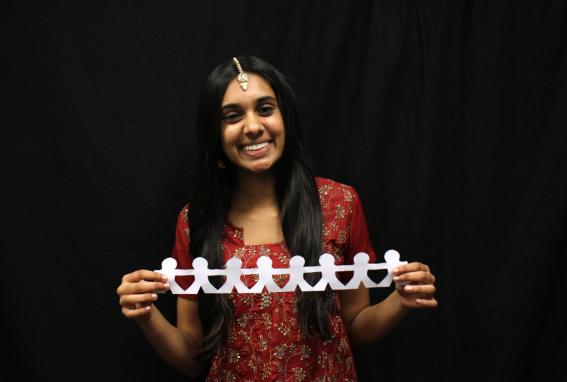Gender equality in religion

In My Opinion
Religion. Christianity, Judaism, Islam, Hinduism. All these different faiths, along with countless more, are united under this one word: religion. Originally created as a way to bring people together, some of the religious guidelines that followers may have to adhere to have become outdated with changing times and the evolution of civilizations. Although some still unify individuals, others are now used to divide and discriminate against certain members of society. Having been a Hindu my entire life, I have personally experienced how many of the traditions have brought my family together. Getting ready for festivals with my mom, helping my dad set up our house for guests coming to celebrate and teaching my younger brother about our customs when we were younger are memories I will cherish forever. My religion is also what allowed me to discover my passion for classical Indian dance, which has taught me many important morals and values, such as the importance of hard work and dedication. However, there are other aspects of our religion that leave me feeling isolated.
Western civilizations have been striving to achieve gender equality, with progressive steps such as the annual Women’s March, the #MeToo movement and California Senate Bill 826, which states that every company has to have women on their board. Despite these events, women continue to face discrimination in their respective religions. Women are banned from many sacred sites, such as the Mount Athos monastery in Greece; Haji Ali Dargah, the tomb of a Muslim saint; and many temples in India, because they are considered impure or a distraction to men. If a woman breaks these rules, she may be threatened and abused by male protestors, as was the case after two women, aged 42 and 44, attempted to enter the Sabarimala temple in Kerala, India on Dec. 24, 2018. It is customary for Hindu women not to enter a temple or participate in any religious festivities while they are on their period, but Sabarimala was one of the few temples that had banned all women of childbearing age until recently. Despite the Indian government overturning the ban at Sabarimala in September 2018, people still protest against women entering. Although these rules discriminate against women, many females also protest the breaking of these rules as it is a traditional standard in their faith. Many of them tend to be older women, who have grown up with the suffocating rules and have accepted them as their only reality.
Often, while the rest of my family goes into the temple, I have to either stay at home or wait outside the temple because I am on my period. When this happens, I feel embarrassed, especially when I wait for my family to return. Strangers entering the temple will know that I am on my period, resulting in me feeling exposed and vulnerable.
Recently, many came together to form a 385 mile chain in Kerala to protest the gender inequality in Hinduism. I believe this peaceful protest was another successful step forward for female empowerment. Being considered too impure to enter a religious sanctum due to my period still, to this day, makes me feel ashamed of something that is a natural part of my body which I have no control over. Instead of creating a taboo against menstruation with rules like those implemented at Hindu temples, we should work to remove all stigma.
I am in no way ashamed of my religion; my culture has played a huge role in shaping me into who I am today, and for that I will forever be grateful. However, I do believe that as times change, religion should adapt with them. I hope more people will take a stand like those who protested at Sabarimala, and people will be propelled by the voices of those against gender inequality, allowing religion to evolve into a better fit for modern civilization as we know it.




























































